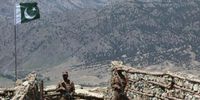In a dramatic escalation of counter-terrorism operations along Pakistan’s western border, security forces have killed a total of 47 militants in the Sambaza area of Zhob district, Balochistan, over a two-day period spanning August 7 to 9, 2025. The operations, hailed as a major blow to Indian-backed groups operating in the region, come amid a surge in terrorist activity and rising tensions along the Pakistan-Afghanistan frontier.
According to multiple statements released by the Inter-Services Public Relations (ISPR), the military’s media wing, the first phase of the operation unfolded on the night between August 7 and 8. Security forces detected a large movement of militants—identified as members of the Indian proxy group Fitna al Khawarij—attempting to infiltrate Pakistan through the Sambaza area. The ISPR detailed that “security forces foiled the infiltration attempt by taking timely and effective action,” resulting in the deaths of 33 militants and the recovery of weapons, ammunition, and explosives from the scene (as reported by Dawn and The News International).
But the operation didn’t end there. On the following night, August 8 to 9, security forces launched what was described as a “deliberate sanitisation operation” near the Pakistan-Afghanistan border in the same region. The ISPR reported, “During the conduct of the operation, fourteen more Indian-sponsored Khawarij were hunted down and successfully neutralised. Weapons, ammunition and explosives were also recovered from the killed Khawarij.” This brought the total number of terrorists eliminated to 47 in just 48 hours—a figure confirmed across several national outlets, including Aaj News and Geo News.
The Fitna al Khawarij, as referenced by Pakistani authorities, is a term used for militants associated with the banned Tehreek-i-Taliban Pakistan (TTP). In May 2025, the government began designating all terrorist organisations operating in Balochistan as Fitna al-Hindustan, explicitly linking them to Indian destabilisation strategies. This rhetorical shift is aimed at framing India’s alleged involvement as a deliberate attempt to sow chaos in Pakistan’s restive provinces, particularly Balochistan and Khyber Pakhtunkhwa (KP).
Prime Minister Shehbaz Sharif was quick to praise the security forces for their decisive action. In a statement cited by Dawn, he said, “The brave personnel of our security forces risked their lives to thwart the terrorists’ infiltration and crushed their evil designs.” He added that the entire nation “stood united with the armed forces in the fight against terrorism,” and reaffirmed the government’s “unwavering resolve to eliminate terrorism from the country.”
Interior Minister Mohsin Naqvi echoed the prime minister’s sentiments, lauding the professionalism and bravery of the security forces. In a public statement, Naqvi remarked, “The nation looks with admiration at the successes of the security forces against the terrorists of the Indian conspiracy. The security forces have brought the Indian-sponsored terrorists involved in spreading chaos in Balochistan to an exemplary end.” He further noted, “Security forces, through timely operations, sent 47 terrorists of Fitna al-Hindustan to hell in two days. By taking swift action, they foiled a sinister conspiracy to sabotage peace in Balochistan.”
The ISPR, for its part, has repeatedly underscored the army’s commitment to defending Pakistan’s borders and maintaining internal stability. In its statements, the military emphasized, “Security forces remain committed to securing the nation’s frontiers and thwarting attempts at sabotaging peace, stability, and progress of Pakistan.” The recovery of significant caches of weapons, ammunition, and explosives from the slain militants highlights the scale and seriousness of the threat faced by security forces in the region.
This latest operation comes against the backdrop of a worrying rise in terror activities across Pakistan, particularly since the TTP ended its ceasefire with the government in November 2022. According to the Global Terrorism Index 2025, Pakistan now ranks second globally in terms of terrorism impact, with deaths from terrorist attacks surging by 45 percent over the past year to a staggering 1,081. The situation has been especially dire in KP and Balochistan, where cross-border infiltration and militant attacks have become increasingly frequent and deadly.
July 2025 saw further violence in Balochistan’s Mastung district, where an intelligence-based operation resulted in the deaths of three terrorists, but also claimed the lives of two security personnel, including an army major. Earlier, two separate operations in Kalat district led to the elimination of eight more militants affiliated with Fitna al-Hindustan. Collectively, these incidents paint a picture of a relentless and evolving security challenge facing Pakistan’s armed forces.
The government’s decision in May to designate all terrorist groups in Balochistan as Fitna al-Hindustan is part of a broader strategy to galvanise domestic support and draw international attention to what it alleges is Indian sponsorship of terrorism within its borders. This narrative, while controversial beyond Pakistan’s frontiers, is increasingly shaping official discourse and security policy at home. It also reflects the country’s deepening anxieties over regional instability and the persistent threat posed by non-state actors operating from across the Afghan border.
For ordinary Pakistanis, the news of the successful operations in Zhob district has been met with a mix of relief and cautious optimism. The sense of national unity invoked by both the prime minister and the interior minister resonates strongly in a country that has endured decades of violence and upheaval. Yet, the broader context remains sobering. The uptick in attacks since late 2022, coupled with Pakistan’s high ranking on the Global Terrorism Index, underscores that the fight against terrorism is far from over.
As the dust settles in the Sambaza area, the government and military have reiterated their determination to pursue “complete eradication of terrorism from the country.” Whether these recent successes can be sustained in the long term—and whether the underlying drivers of militancy can be addressed—remains to be seen. For now, however, Pakistan’s security forces stand credited with delivering a significant blow against those seeking to destabilise the nation’s hard-won peace.




